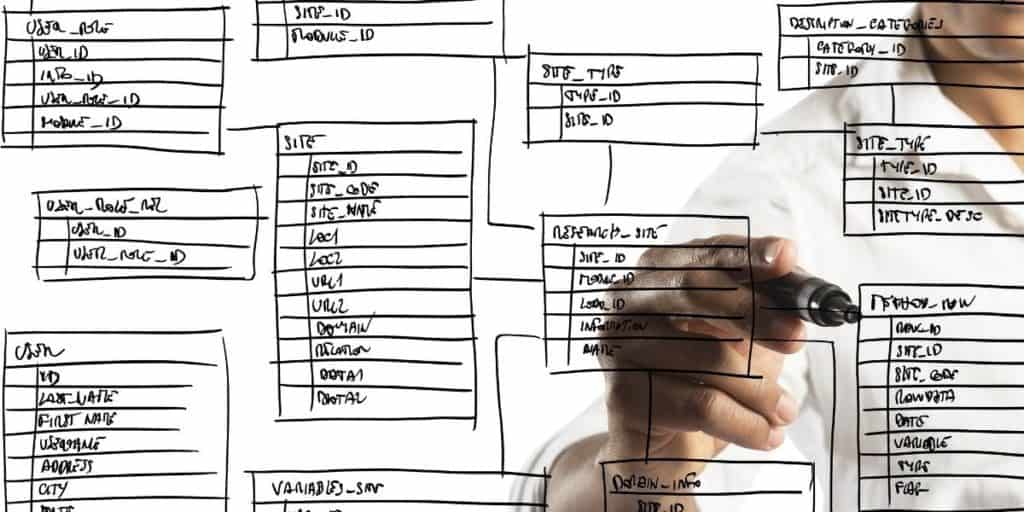As more and more people turn to data engineering for their careers, it becomes crucial to answer basic questions about what data engineering is and isn’t. It’ll help you decide if this field is for you based on your strengths and weaknesses. One such question is whether statistics is a part of a data engineer’s day-to-day activities.
Data engineers don’t need to know statistics. They only need to learn programming languages, frameworks, and database management. However, knowing the basics of statistics like the terminologies can help data engineers understand project requirements better and build more suitable data pipelines.
In this article, we will discuss how much statistics data engineers need to know. We’ll also look at what tools and techniques data engineers use every day since statistics is not one of them.
Important Sidenote: We interviewed numerous data science professionals (data scientists, hiring managers, recruiters – you name it) and identified 6 proven steps to follow for becoming a data scientist. Read my article: ‘6 Proven Steps To Becoming a Data Scientist [Complete Guide] for in-depth findings and recommendations! – This is perhaps the most comprehensive article on the subject you will find on the internet!
Table of Contents
Should You Learn Statistics for Data Engineering?
To understand what role statistics may play in data engineering, we need to first understand what data engineering is. Data jobs have not yet matured fully, so the positions in this field are subject to misunderstandings.

Data engineering is all about optimizing data for analysis; it is the backbone of data science. Data engineers collect large volumes of data from various sources, clean it to make it available for use, and finally store it in the destination systems.
During this process, data engineers build data pipelines, use warehousing solutions and cloud platforms, manage and manipulate datasets, create APIs, and more. These tasks require strong coding skills and technical knowledge. However, they don’t involve statistics or mathematics. So you don’t need to be an expert in statistical concepts to become a data engineer.
Data engineers may use statistical metrics (created by statisticians) to help collect data. But they never directly use these principles to gain insights from the data. Their job ends as soon as they’ve ensured that the data they’ve collected is suitable for data scientists and business intelligence analysts.
By the way, machine learning also plays a similar role in this job. It doesn’t constitute the core of data engineering, but knowing the basics of machine learning algorithms and data structure is always helpful. It allows you to understand data scientists’ needs and collaborate better with them. We’ve discussed it in detail in another article, which you can read here: Do Data Engineers Do Machine Learning?
Statistics Is a Concern of Data Scientists
As we’ve said, data science is a relatively new field, so people often confuse different data jobs like data scientists, data engineers, machine learning engineers, etc. The question we’re discussing is also a result of this confusion. Data engineers have little to do with statistics, but data scientists use it extensively.
Data scientists analyze information—which is collected and optimized by data engineers—to answer business questions. They interpret data at various levels to gain useful insights from it, such as trends and patterns. Then, they design machine learning algorithms and predictive models to solve problems.
Statistics and mathematics are the building blocks of machine learning algorithms. Since building ML algorithms is a big part of their job, data scientists need to have a strong understanding of statistical concepts. The most essential aspects of statistics for data scientists are descriptive statistics, probability theory, and Bayesian thinking.
In short, the difference between data engineers and data scientists is that the former collects data from various sources and makes it available for use, while the latter analyzes the data to build machine learning models.
Still, Data Engineers Benefit From Statistical Knowledge
As we’ve discussed, statistics is used mainly by data scientists to draw inferences by analyzing trends in data. Data engineers only work to optimize large volumes of data and provide it to other team members for analysis. They don’t have to know statistical concepts for them to do their job efficiently.
However, Since data engineers work intimately with data scientists and other analysts, it always helps to know the basics of statistics. This allows you to understand your team members’ needs and manipulate data in a way that makes it easier to analyze.
Data engineers can also use statistical metrics in measuring the use of data in a database or cloud platform. So it’s good to know some concepts of descriptive statistics like calculating percentiles from collected data.
We must admit that it largely depends on the company. Some organizations specifically list basic statistical knowledge as a requirement, while others don’t mind hiring interns who don’t know statistics. So you’ll need to check the job listing to make sure you feel the criteria.
What Do Data Engineers Need To Know, if Not Statistics?
So now you know that statistics is not a strict requirement for data engineering. But then the question arises: What are the necessary tools and technologies data engineers must know?
If we go back to their job, data engineers’ aim is to make data available for analysis. Their primary tasks include getting data from different sources and making it available to data scientists and data analysts. So here are the skills data engineers need to have:
Programming
Programming skills are essential for data engineering. The more proficient you are at programming, the more competent data engineer you become.
Python is the most used programming language for all things data. It has several frameworks and libraries that make it easy for data engineers to create APIs, process data and build data pipelines. Although you don’t have to know everything about Python, it’s crucial to understand how to handle data-related problems with the language.
Apart from Python, Scala, R, and Java are also used by data engineers. Python is often used in conjunction with these languages in big companies.
Database Management
Managing databases is at the core of data engineering. Data engineers handle large databases and manipulate data to make it suitable for analysis.
For this purpose, they usually use SQL, the standard language for database management and data manipulation. According to Cloud Academy, SQL is the most sought skill for data engineering. So if you want to land a job as a data engineer, you must learn the ins and outs of SQL.
Apart from SQL, there are also NoSQL databases. Although they’re currently not as popular, NoSQL databases can give a boost to your career as some companies may already be using them.

ETL Tools and Spark
Extract, Transform, Load (ETL) is a set of tools and technologies used to move data between systems. Data engineers should know how to build data pipelines to extract data from multiple sources, optimize and clean it, and then load it into the destination systems.
Data engineers must also know how to use processing engines like Apache Spark and Hadoop. These tools allow them to process large volumes of datasets quickly and efficiently.
Lastly, cloud platforms like Google Cloud, Microsoft Azure, and Amazon Web Services are also essential for data engineering.
Author’s Recommendations: Top Data Science Resources To Consider
Before concluding this article, I wanted to share few top data science resources that I have personally vetted for you. I am confident that you can greatly benefit in your data science journey by considering one or more of these resources.
- DataCamp: If you are a beginner focused towards building the foundational skills in data science, there is no better platform than DataCamp. Under one membership umbrella, DataCamp gives you access to 335+ data science courses. There is absolutely no other platform that comes anywhere close to this. Hence, if building foundational data science skills is your goal: Click Here to Sign Up For DataCamp Today!
- IBM Data Science Professional Certificate: If you are looking for a data science credential that has strong industry recognition but does not involve too heavy of an effort: Click Here To Enroll Into The IBM Data Science Professional Certificate Program Today! (To learn more: Check out my full review of this certificate program here)
- MITx MicroMasters Program in Data Science: If you are at a more advanced stage in your data science journey and looking to take your skills to the next level, there is no Non-Degree program better than MIT MicroMasters. Click Here To Enroll Into The MIT MicroMasters Program Today! (To learn more: Check out my full review of the MIT MicroMasters program here)
- Roadmap To Becoming a Data Scientist: If you have decided to become a data science professional but not fully sure how to get started: read my article – 6 Proven Ways To Becoming a Data Scientist. In this article, I share my findings from interviewing 100+ data science professionals at top companies (including – Google, Meta, Amazon, etc.) and give you a full roadmap to becoming a data scientist.
Conclusion
Data engineers only deal with data extraction, optimization, and storage. Statistics doesn’t play a significant role in their day-to-day job. Instead, they need to know programming, database management, and several essential programs. But since data engineers work with data scientists, it helps to know statistical terminologies so they can collaborate well with them.
The job of data engineers is often confused with that of data scientists. This leads to questions like “do data engineers use statistics/machine learning/coding?” It’s essential to understand the difference between data engineers and data scientists so you can choose the perfect career for yourself.
BEFORE YOU GO: Don’t forget to check out my latest article – 6 Proven Steps To Becoming a Data Scientist [Complete Guide]. We interviewed numerous data science professionals (data scientists, hiring managers, recruiters – you name it) and created this comprehensive guide to help you land that perfect data science job.
Affiliate Disclosure: We participate in several affiliate programs and may be compensated if you make a purchase using our referral link, at no additional cost to you. You can, however, trust the integrity of our recommendation. Affiliate programs exist even for products that we are not recommending. We only choose to recommend you the products that we actually believe in.

